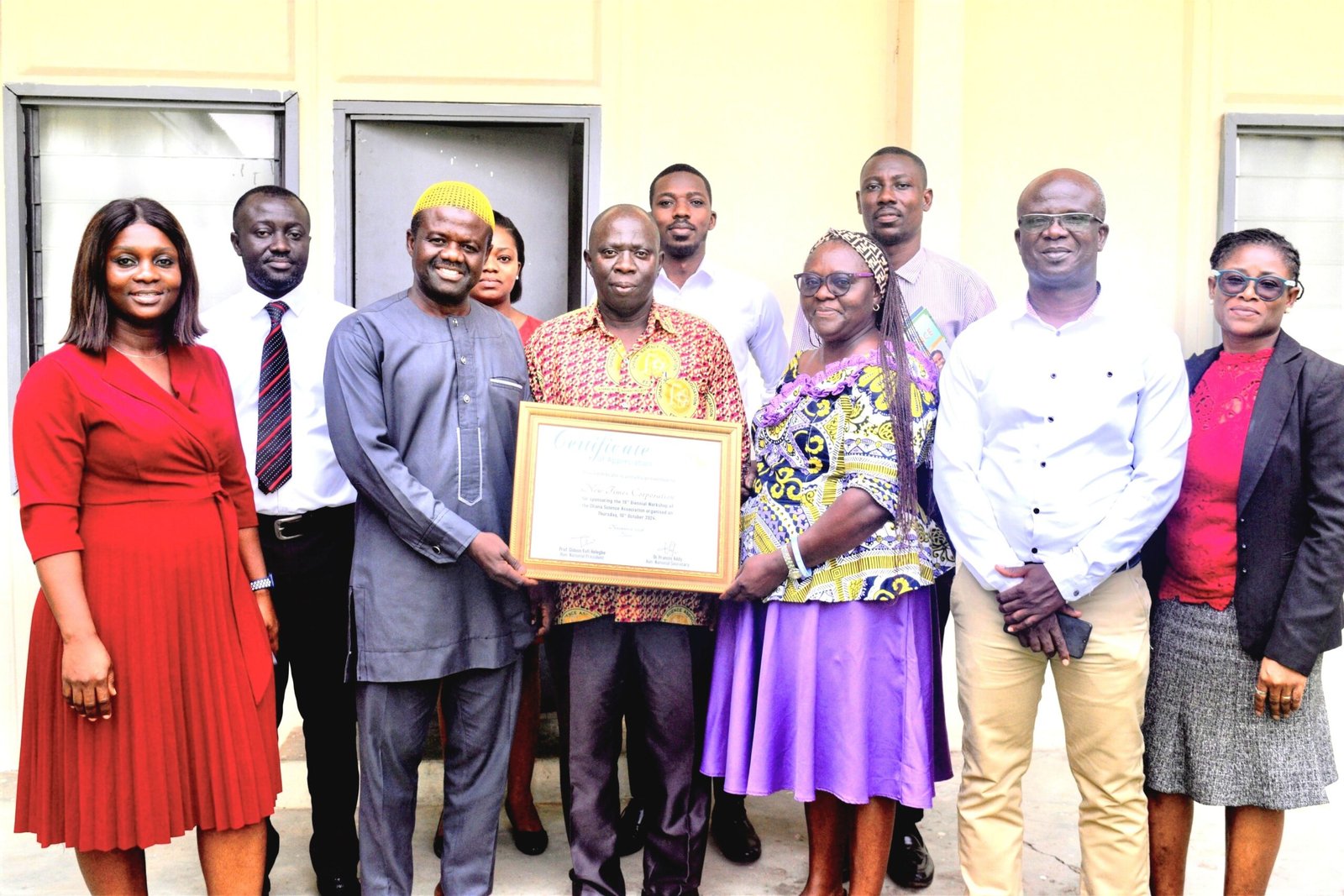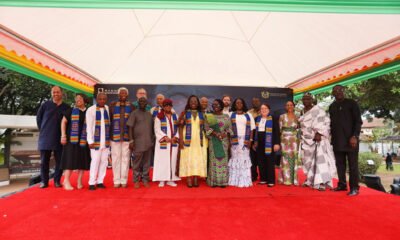News
NTC, GSA pledge to strengthen ties

The Ghana Science Association (GSA) on Tuesday called on the management of the New Times Corporation (NTC), to strengthen the relationship that exists between the two institutions.
The call was also to appreciate the corporation for sponsoring its 19th biennial workshop organised last year and presented a certificate to the management of the corporation.
Presenting the certificate, the Scientific Coordinator of GSA, Mr Forson Dzotor, said the association was a voluntary, non-profit and multidisciplinary association of scientists with membership made up of all scientists in public universities and research institutes across the country.
He said the mandate of the association include promotion of science, technology and mathematics and creating a platform for scientists, policy makers, industry and anyone interested in science.
He said such platforms offer opportunity to individuals to share ideas, interact and deliberate on topical issues that bother on national development and come with recommendations to government.
Mr Dzotor said a number of institutions had been formed through recommendations from scientists to the GSA and collaborations established with the private sector to improve science in the country.
According to Mr Dzotor, the association had collaborated with a number of institutions including media houses adding that “we had a good collaboration with The Ghanaian Times.”
The Acting Managing Director of NTC and Editor of The Spectator, Mrs Georgina Naa-Maku Quaittoo, expressed gratitude to GSA for recognising The Ghanaian Times, adding “ this is the beginning of the friendship between us.”
On his part, the Acting Editor of The Ghanaian Times, Alhaji Salifu Abdul- Rahaman, observed the evolving relationship between scientists and the media.
He recounted how scientists operated on their own from their laboratories and relied solely on publishing their journals to disseminate their findings with the notion that the media would struggle to comprehend their technical language, which could lead to misreporting and, therefore, kept their work from journalists.
He however acknowledged the gradual shift, where scientists now engage the media, and involve them in scientific work and research.
Emphasising the role of the media in simplifying scientific concepts for the public, Alhaji Abdul-Rahaman said: “We have the skills and knowledge to break down scientific terms into language that the everyday person can understand.”
By Jemima Esinam Kuatsinu
News
Ahmadiya Muslim Mission calls on Muntaka Mubarak

A delegation from the Ahmadiyya Muslim Mission, led by the Ameer Maulvi Mohammed Bin Salih called on the Minister of the Interior, Muntaka Mohammed-Mubarak, at the Ministry to commiserate with him on the demise of his mother, which occurred in February and also congratulated him on his appointment.
A delegation from the Ahmadiyya Muslim Mission, led by the Ameer Maulvi Mohammed Bin Salih called on the Minister of the Interior, Hon. Muntaka Mohammed-Mubarak, at the Ministry to commiserate with him on the demise of his mother, which occurred in February and also congratulated him on his appointment.
Muntaka thanked the Ameer and his delegation for the gesture. He stated that, although his mother is no longer alive, the visit demonstrates that he has a supportive family that will advise and guide him to perform well and achieve the Ministry’s mandate.

He outlined his plans, emphasizing his commitment to digitalizing the Ministry’s services to make them more accessible to the public.
The minister called for Public-Private Partnerships to drive his agenda forward.
He also called on the Muslim communities to come together and also contribute their quota to the develop of the Ministry and the nation as a whole.
News
Ghana Dental Association celebrates World Oral Health Day

On March 20, the world would celebrate World Oral Health Day, with the team“a happy mouth is a happy mind.
The Ghana Dental Association has dubbed this month Oral Health Awareness Month.
As we traverse the month, Ghana Dental Association wants to emphasize the critical connection between oral health and our mental well – being.
Dentistry has been perceived as a reactive profession, focusing more on treatment rather than preventative measures.
This perception is changing gradually and the public is recognizing the significant impact oral health has on their overall well being, including our mental and cognitive health.
Poor oral health can lead to low self-esteem, anxiety, and depression, making everyday interactions a daunting task. Chronic oral pain can disrupt sleep patterns, exacerbating stress and negatively impacting mental health.
Moreover, research suggests that gum disease is linked to an increased risk of Alzheimer’s disease and dementia, highlighting the critical oral-systemic connection.¹
Conversely, people with mental health conditions may neglect their oral hygiene, increasing their risk of cavities and gum disease.
Stress-related habits like teeth grinding, smoking, or binge eating can also damage teeth and gums, perpetuating a vicious cycle.
A healthy diet rich in vitamins and minerals supports strong teeth and bones while also benefiting brain function. Regular dental check-ups, scaling and polishing (professional cleaning), and proper oral hygiene practices not only maintain a healthy mouth but also contribute to better overall well-being and confidence.
“As dentists, we must prioritize preventive care and encourage mindfulness practices like stress management and relaxation techniques to prevent issues like bruxism and TMJ disorders. And, yes, even dentists need to visit their dentists regularly!,” they stress.







